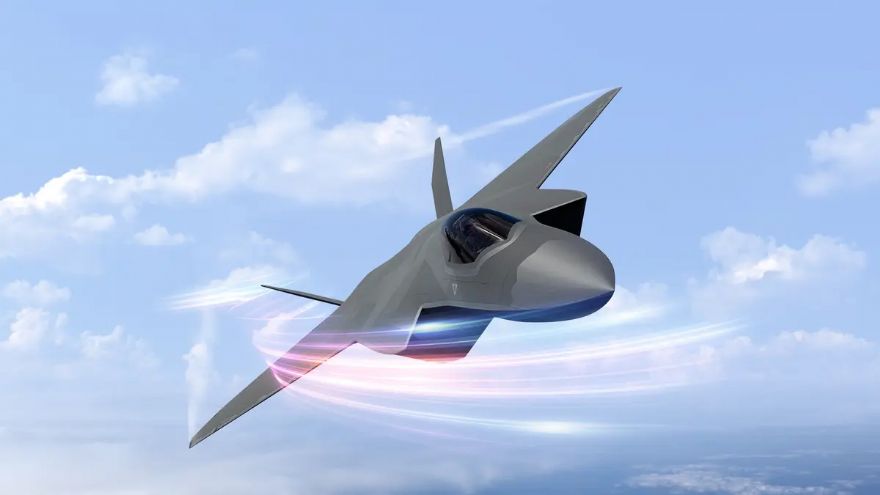
UK, Italy, and Japan — the three nations of the Global Combat Air Programme (GCAP) –– unveiled a new concept model of their next-generation combat aircraft at last month’s Farnborough International Airshow. The three GCAP government partners and their lead industry partners —
BAE Systems (UK),
Leonardo (Italy), and
Mitsubishi Heavy Industries (Japan) — highlighted ‘the strides they are making to progress the delivery of a truly next-generation combat aircraft’.
Herman Claesen, BAE Systems’ managing director of ‘Future Combat Air Systems’, said: “In the 18 months since the launch of GCAP we have been working closely with our industrial partners in Italy and Japan under the collaboration agreement, and with the three governments, to understand and align requirements for a next-generation combat aircraft. The new model, unveiled at Farnborough International Airshow, shows notable progress in the design and concepting of this future fighter jet. We will continue to test and evolve the design, as we move closer towards the next phase of the programme.
Guglielmo Maviglia, Leonardo’s chief global combat air programme officer, said: “We are now working closely together to exchange knowledge, address common challenges and achieve common goals. The programme is immensely important for Italy, for Leonardo, including our UK-based business, and for wider Italian industry.”
Hitoshi Shiraishi, Mitsubishi Heavy Industries’ senior fellow — GCAP, added: “Since GCAP is a three-country joint development programme, we expect to obtain better results and deeper knowledge by combining the different cultures, experiences and knowledge of those involved. I also hope that this GCAP programme, with the broad participation of Japan’s defence companies, will foster innovation in the country’s industrial sector, such as digital transformation, as well as the development of human resources in the field of science and technology.”
The combat aircraft, which is scheduled to be in service in 2035, will be one of the world’s most advanced, interoperable, adaptable and connected fighter jets, featuring a software-driven interactive cockpit, integrated sensors, and a powerful next-generation radar capable of providing 10,000-times more data than current systems. Moreover, GCAP is set to employ tens of thousands of skilled people throughout the UK, Italy, and Japan, while growing industrial skills and technologies for the future.